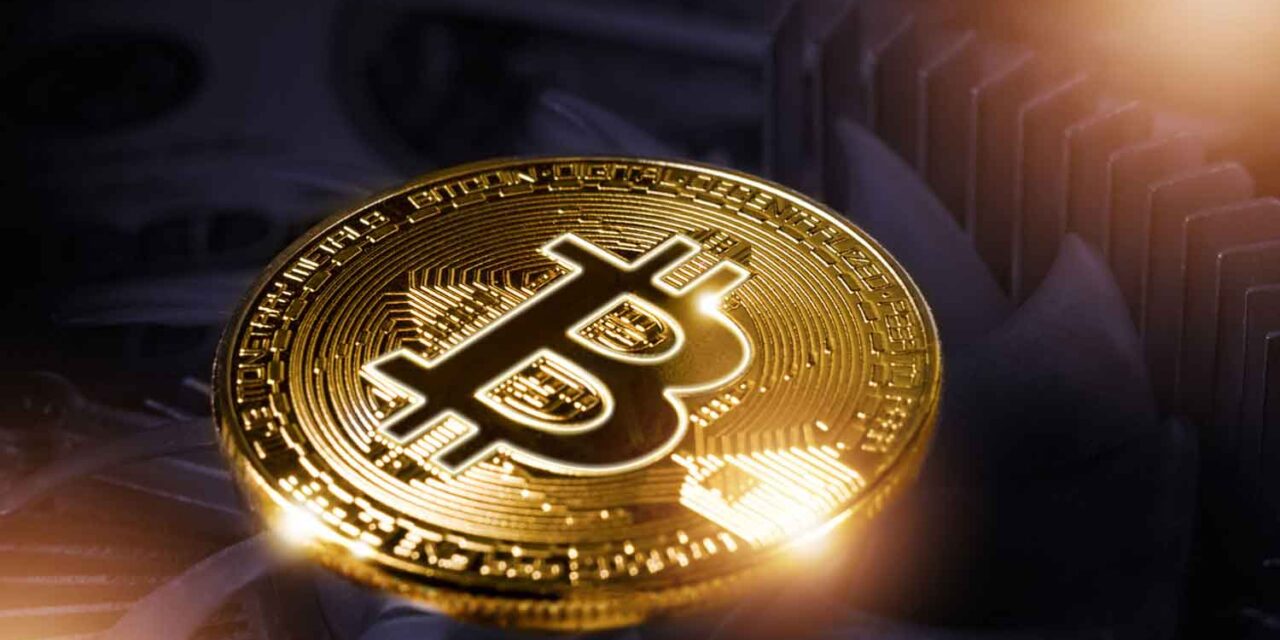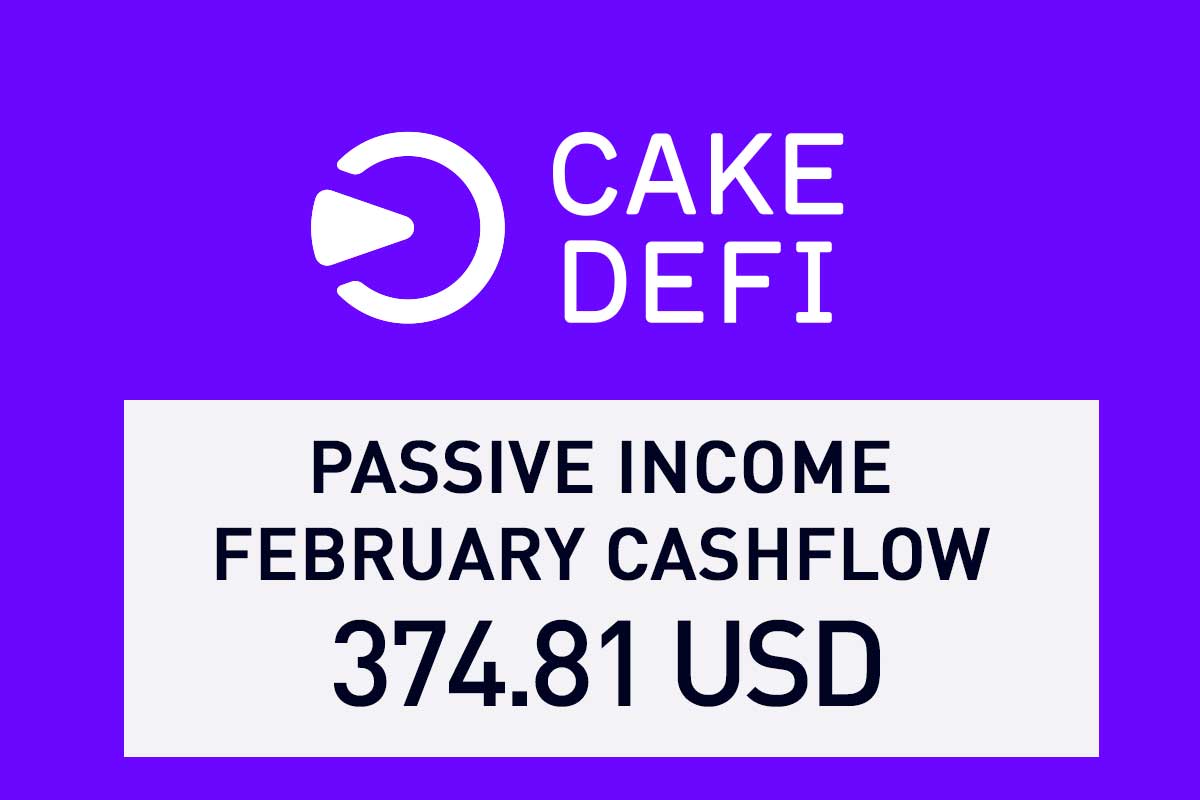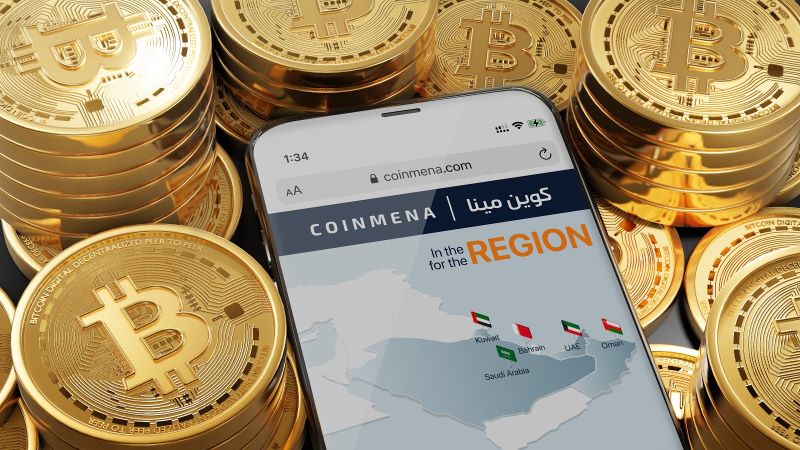In recent years, earning Bitcoin and other cryptocurrencies in the United Arab Emirates (UAE) has become a popular topic. As a fast-growing financial hub in the Middle East, the UAE recognizes the significant potential of digital currencies like Bitcoin. I’d like to guide you through some ways to earn Bitcoin in the UAE and provide necessary information to navigate this exciting market.
As an investor in the UAE, I’ve witnessed the increasing integration of cryptocurrencies into the region’s economy. The ability to buy and trade cryptocurrencies on reputable exchanges such as Binance and Kraken has allowed residents easier access to digital assets. Additionally, the introduction of crypto ATMs in cities like Dubai readily facilitates Bitcoin transactions.
While living in the UAE, I’ve noticed that earning Bitcoin has become more accessible due to various options available, such as mining, trading, and receiving payments in Bitcoin for goods or services. By understanding the available options and keeping up-to-date with local regulations, one can effectively pursue earning Bitcoin in the Emirate.
Popular Platforms in UAE
Bitoasis
In my experience, Bitoasis is one of the leading cryptocurrency exchanges in the UAE. It provides an easy-to-use platform, where I can purchase, sell, and store various cryptocurrencies like Bitcoin, Ethereum, and Ripple. Bitoasis offers multiple payment methods, including credit/debit cards and bank transfers, which makes it convenient for me to invest in cryptocurrencies.
Rain
Rain is another popular platform in the UAE, where I can buy and sell Bitcoin and other cryptocurrencies. Rain offers a user-friendly interface and focuses on the security of user funds. The platform is fully licensed and regulated, giving me confidence in the reliability of the service. They also offer competitive fees and a 24/7 customer support system, which I find quite helpful.
LocalBitcoins
When it comes to peer-to-peer trading, LocalBitcoins is my go-to option. As a decentralized marketplace, it allows me to buy and sell Bitcoin directly with other users without the need for a centralized exchange. The platform facilitates various payment methods, including cash, bank transfers, and online payment systems, which gives me flexibility when making transactions.
Binance
Binance is a global cryptocurrency exchange that I find useful for trading a wide range of cryptocurrencies. Their platform features an intuitive interface and advanced trading tools, which makes it perfect for both beginners and experienced traders like me. Additionally, Binance offers a mobile app that enables me to trade on-the-go.
Etoro
Etoro is an innovative trading platform that I use for cryptocurrency and traditional asset trading. It supports various cryptocurrencies such as Bitcoin, Ethereum, and Litecoin. I particularly enjoy Etoro’s unique features like social trading, where I can follow and copy the trades made by other successful traders within the platform.
Kraken
Kraken is a well-established cryptocurrency exchange that I trust for trading Bitcoin and other major cryptocurrencies. It supports various payment methods, including fiat currencies like USD, EUR, and JPY. Kraken’s platform is known for its security measures, transparent fee structure, and excellent customer support, which definitely boosts my confidence when trading.
Coinmama
Coinmama is another platform I use to buy and sell cryptocurrencies with ease. It supports numerous cryptocurrencies like Bitcoin, Ethereum, and Litecoin. To make a purchase, I can use my credit/debit card, making the process quick and straightforward. Coinmama boasts on its fast transactions and dedicated customer support, which I find quite reassuring.
Paybis
Lastly, Paybis is a platform that allows me to buy and sell Bitcoin, Ethereum, and other cryptocurrencies using various payment options like credit/debit cards, bank transfers, and electronic wallets. I appreciate Paybis for their user-friendly interface, transparent fees, and a wide range of payment methods, making it convenient for me to invest in cryptocurrencies.
Buying and Selling Bitcoin
Using Credit or Debit Cards
When I want to buy Bitcoin in UAE, I can use my credit or debit cards on platforms like Coinmama. It’s simple, and I only need to sign up for an account and provide the necessary card details. Coinmama charges a 4.9%-5.9% fee dependent on volume. However, purchasing with credit or debit cards is fast, secure, and convenient.
Through Bank Transfers
Buying Bitcoin through bank transfers is another method I can use. Platforms such as BitOasis allow me to purchase Bitcoin by connecting my bank account. The process is straightforward; I need to sign up for an account, provide the required details, and confirm the transaction. Although bank transfers might take more time compared to card purchases, it typically has lower fees.
Peer-to-Peer Trading
Peer-to-peer (P2P) trading allows me to trade Bitcoin directly with other individuals. By using platforms like LocalBitcoins, I can find buyers or sellers willing to trade in Dubai. P2P trading provides more privacy, and the platform acts as an escrow service to ensure my funds are secure during transactions. It’s crucial to check traders’ reputations and perform due diligence before engaging in any deal.
Bitcoin ATMs
If I prefer a more private and instant method of buying Bitcoin, I can use Bitcoin ATMs. These machines allow me to purchase Bitcoin by depositing cash or scanning my wallet’s QR code. The fees for using Bitcoin ATMs are usually between 5-10%, but the convenience and privacy it offers make it a suitable option for me. I can locate nearby Bitcoin ATMs by using online maps specifically designed for this purpose.
Security Measures and Wallets
Hardware Wallets
As someone who’s interested in earning Bitcoin in the UAE, I understand the importance of keeping my digital assets secure. One of the most popular and secure ways to store Bitcoins is using a hardware wallet. These wallets are physical devices that enable offline storage for your private keys.
Two leading hardware wallets in the market are Trezor and Ledger Nano S. I prefer using Trezor as it’s user-friendly and can store multiple cryptocurrencies, including Bitcoin, Ethereum, and Litecoin. It is considered one of the most secure devices available.
Cold Storage Hardware Wallet
If I want to take my security measures to the next level, I can choose a cold storage hardware wallet. These wallets provide an additional layer of security as they are not connected to the internet. This makes them less susceptible to hackers, phishing attacks, and other digital threats.
Ledger Nano S is an excellent example of a cold storage hardware wallet. It is a compact and secure device that can store multiple cryptocurrencies, including Bitcoin. The keys stay encrypted within the device, providing an uncompromising level of security. This wallet also supports integration with popular software wallets for easy access to your funds.
In conclusion, when earning Bitcoin in the UAE, it’s vital to prioritize security. Implementing the right measures, such as using a hardware wallet or cold storage hardware wallet, ensures the safety of my digital assets and provides peace of mind while navigating the world of cryptocurrencies.
Regulations and Compliance
Virtual Assets Regulatory Authority
As a crypto enthusiast planning to earn Bitcoin in the UAE, I must ensure compliance with the local regulations. One important entity in the UAE regulating crypto activities is the Virtual Assets Regulatory Authority (VARA). VARA focuses on licensing and regulating the use of crypto assets, such as issuing and promoting digital currencies, offering custodial services, and fund-raising on crypto trading platforms.
From my research, I discovered that the Abu Dhabi Global Market (ADGM) has taken a proactive approach in regulating crypto activities. ADGM’s Financial Services Regulatory Authority (FSRA) became the first regulator to provide comprehensive guidance and regulations for cryptocurrencies in the UAE. Their guidance covers Initial Coin Offerings (ICOs), virtual assets, and blockchain technology.
Central Bank of Bahrain
While investigating the wider Middle East and MENA region, I learned that the Central Bank of Bahrain (CBB) is another essential authority overseeing digital asset activities. The CBB has introduced a regulatory framework that covers crypto-asset services in this part of the region. Key aspects of their regulation include:
- Licensing for crypto-asset platforms
- Consumer protection measures
- Rules for combating market manipulation and fraud
To summarize, while planning to earn Bitcoin in the UAE, I must comply with the regulations set by the Virtual Assets Regulatory Authority and stay informed about the developments in the broader Middle East, including the Central Bank of Bahrain’s regulatory framework. By doing so, I ensure that my activities align with the requirements of the authorities and contribute to the responsible growth of the crypto industry.
Verification Process and Limits
In the UAE, the verification process for buying and trading Bitcoin varies depending on the platform or exchange you choose. I’ll give you a brief overview of the general procedure and some limits you may encounter when dealing with cryptocurrency.
First, to comply with anti-money laundering (AML) and know-your-customer (KYC) regulations, most platforms need to verify my personal information. This often includes my name, date of birth, address, and a copy of my government-issued ID. In some cases, I may be asked to provide a selfie holding the ID, as well^1^.
Once my identity is verified, I can move on to depositing funds. The process for depositing fiat currency depends on the platform I’m using. I usually opt for bank transfers, credit/debit card transactions, or online payment systems like PayPal. Keep in mind that transaction fees and processing times vary between platforms.
After depositing funds, I can begin trading cryptocurrencies like Bitcoin. However, there may be limits imposed on the amount of cryptocurrencies I can buy or trade per day, week, or month. These limits tend to increase as my verification level gets higher – for instance, some platforms allow me to buy up to $1,350 of BTC weekly without any verification^2^, while others may have more stringent limits.
It’s also worth noting that the cryptocurrency industry in the UAE is continuously evolving with new regulations and guidelines, so always keep myself updated by checking the latest information from the platform or exchange I’m using, as well as local authorities if needed.
References:
- Bitcoin.com Support Center – Identity verification FAQ (MoonPay)
- Bitcoin in the UAE: Live AED Price, Best Exchanges, Taxes, and History
Trading and Investment Options
As someone who is interested in earning Bitcoin in the UAE, I have found various trading and investment options available for both beginners and experienced traders. In this section, I’ll discuss leverage trading and Bitcoin futures as common methods.
Leverage Trading
Leverage trading, also known as margin trading, allows me to open a position in the cryptocurrency market with borrowed capital. This way, I have the opportunity to increase my potential profits by using leverage that many trading platforms provide. Here are the typical steps I follow to engage in leverage trading:
- Register an account on a reliable and reputable cryptocurrency exchange such as eToro, AVAtrade, or IQ option.
- Deposit funds into my account.
- Choose a trading pair (e.g., BTC/USD) and the leverage ratio (e.g., 5x or 10x).
- Open a long (buy) or short (sell) position, depending on my market outlook.
It’s crucial for me to remember that while leverage trading can boost potential profits, it also brings a higher risk. It’s important to closely monitor my positions and utilize risk management strategies like stop-loss orders.
Bitcoin Futures
Bitcoin futures are standardized contracts that I can use for trading and investing in the cryptocurrency market. These contracts allow me to buy or sell Bitcoin at a predetermined price at a specific future date. By engaging in Bitcoin futures, I can hedge against price fluctuations and minimize my risk exposure.
To trade Bitcoin futures, I usually follow these steps:
- Open an account on a cryptocurrency exchange or trading platform that offers Bitcoin futures, such as Binance or BitMEX.
- Deposit funds into my account; most futures platforms accept multiple forms of deposits such as cryptocurrencies and stablecoins.
- Choose a Bitcoin futures contract to trade, considering the contract size, expiration date, and the price direction (long or short).
When trading Bitcoin futures, I need to be informed about the market’s ongoing trends and have a strategy in place. It’s crucial to be aware of the potential risks associated with futures trading and develop a risk management plan.
In summary, leverage trading and Bitcoin futures are two prevalent methods to earn Bitcoin in the UAE. It’s essential for me to carefully consider my risk tolerance, develop a strategy, and continuously monitor market conditions when engaging in these trading and investment options.
Fees and Expenses
When I started exploring ways to earn Bitcoin in UAE, I discovered that understanding the fees and expenses associated with trading and investing is crucial. This helps me to make informed decisions and optimize my profit margins.
In my experience, trading fees vary depending on the platform I choose to trade or invest in cryptocurrencies. For example, on some platforms, trading fees can range from 0.1% to 0.02% /0.04% depending on my VIP level status Gulf News. Furthermore, I have encountered instances where both Maker and Taker receive a 25% discount on trading fees.
When I first started, I compared several well-known platforms in the UAE such as eToro, AVAtrade, IQ option, and Saxo Bank. I also explored accounts on exchanges like Coinbase and Kraken to broaden my options Global Media Insight.
Apart from trading fees, I noticed some platforms charge additional fees related to deposits, withdrawals, or currency conversions. Therefore, I always double-check these expenses before making any transactions to avoid unexpected losses on my investments.
Some platforms offer variable spreads as part of their fee structure. For instance, Alvexo charges 3.3% on EUR/USD for its Classic account Trading Platforms. As a result, it’s essential for me to research the fee structure and compare different platforms to find the most suitable and cost-effective option for my specific trading and investment needs.
Risks and Considerations
Volatility
One of the most significant risks when earning Bitcoin in the UAE is the extreme volatility of crypto assets. In my experience, I have seen the value of cryptocurrencies, including Bitcoin, fluctuate wildly in a matter of hours or even minutes. Potential investors may want to consider that the price of Bitcoin can drop drastically, leading to financial loss. One way to mitigate this risk is to closely monitor the market trends and set up stop-loss orders when trading or investing.
Capital Gains
Another consideration when earning Bitcoin in the UAE is the potential capital gain when converting it into fiat currency, such as AED. If I end up selling my Bitcoin at a higher value than when I first acquired it, I’m subject to capital gains tax. Moreover, tracking all my transactions, especially if I use the cryptocurrency for everyday purchases, can be time-consuming and complex. Some tips on managing capital gains are:
- Keep detailed records of your transactions, including dates, amounts, and prices.
- Monitor any applicable tax regulations in the UAE concerning cryptocurrencies and capital gains.
- Consult with a financial advisor or tax professional to ensure you are accurately reporting your capital gains and staying compliant with local tax laws.
In summary, while there are potential profits in earning Bitcoin in the UAE, it’s crucial to be aware of the risks and considerations, such as market volatility and capital gains regulations, and take necessary steps to protect your investments.

























